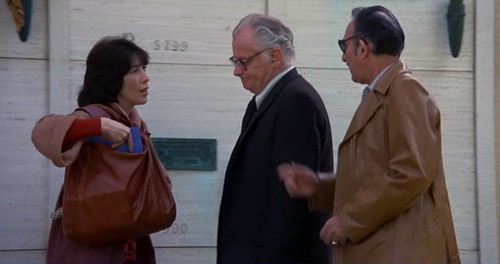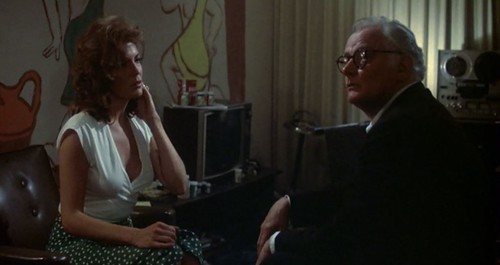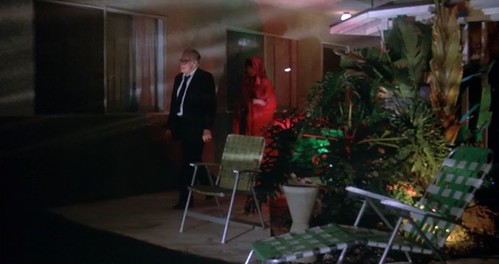Sunday, March 27, 2016
Truest statement of the week
“It takes courage for a society to address uncomfortable truths about the darker parts of its past. Confronting crimes committed by our own leaders… is essential to moving forward to building a peaceful and prosperous future in a country that respects the rights of all of its citizens.”
These were the words of President Barack Obama in praise of Mauricio Macri, Argentina’s new right-wing president, spoken at a ceremony held in Buenos Aires on March 24, the 40th anniversary of the military coup that brought to power the murderous US-backed dictatorship of Gen. Jorge Videla.
Obama could just as well have been speaking of the crimes committed by the United States against the people of Argentina and the rest of Latin America. But as the remainder of his remarks, aimed at covering up Washington’s crimes, made clear, his policies are directed not at building a society based on peace, prosperity and basic rights, but on defending the wealth and power of a rapacious capitalist oligarchy.
In his brief visit to the Parque de la Memoria in Buenos Aires, dedicated to the 30,000 Argentine workers, students and leftists who were murdered and “disappeared” under the junta, Obama was surrounded by a small army of Secret Service agents, watched over by snipers and helicopters, and kept a safe distance from the hundreds of thousands of Argentine workers and youth who took to the streets to mark the day. He was accompanied by Macri, whose basic policies are in continuity with those of the bygone junta.
What were the “uncomfortable truths” and “darker… past” Obama chose to confront in terms of Washington’s own role in the bloody events in Argentina? US officials, he said, had failed to “live up to the ideals that we stand for” and had been “slow to speak out for human rights.”
It is hard to imagine more mealymouthed and dishonest words from an American president.
-- Bill Van Auken, "Obama’s pivot to Latin America" (WSWS).
Truest statement of the week II
-- our own Ann calls out the lies at NBC's "Meet Jill Stein, the Green Party Candidate for President."
A note to our readers
Hey --
A Sunday.
First, we thank all who participated this edition which includes Dallas and the following:
The Third Estate Sunday Review's Jim, Dona, Ty, Jess and Ava,
Rebecca of Sex and Politics and Screeds and Attitude,
Betty of Thomas Friedman Is a Great Man,
C.I. of The Common Ills and The Third Estate Sunday Review,
Kat of Kat's Korner (of The Common Ills),
Mike of Mikey Likes It!,
Elaine of Like Maria Said Paz),
Cedric of Cedric's Big Mix,
Ruth of Ruth's Report,
Wally of The Daily Jot,
Trina of Trina's Kitchen,
Marcia of SICKOFITRDLZ,
Stan of Oh Boy It Never Ends,
Isaiah of The World Today Just Nuts,
and Ann of Ann's Mega Dub.
And what did we come up with:
Mike and the gang wrote this and we thank them for it.
And we made it and got it all up and posted on a Sunday. Amazing!!!!
Peace.
-- Jim, Dona, Ty, Jess, Ava and C.I.
A Sunday.
First, we thank all who participated this edition which includes Dallas and the following:
The Third Estate Sunday Review's Jim, Dona, Ty, Jess and Ava,
Rebecca of Sex and Politics and Screeds and Attitude,
Betty of Thomas Friedman Is a Great Man,
C.I. of The Common Ills and The Third Estate Sunday Review,
Kat of Kat's Korner (of The Common Ills),
Mike of Mikey Likes It!,
Elaine of Like Maria Said Paz),
Cedric of Cedric's Big Mix,
Ruth of Ruth's Report,
Wally of The Daily Jot,
Trina of Trina's Kitchen,
Marcia of SICKOFITRDLZ,
Stan of Oh Boy It Never Ends,
Isaiah of The World Today Just Nuts,
and Ann of Ann's Mega Dub.
And what did we come up with:
Bill Van Auken gets a truest.
As does Ann.
If they can't be honest about Iraq, it's no surprise that they can't be honest about anything.
Ava and C.I. take on the increasingly embarrassing 60 MINUTES.
August? Really? Reader Marlena e-mailed to tell us we hadn't updated this ongoing series since August. Our apologies.
She has none.
Exactly.
Oh, 'Juan' Cole, you're such an embarrassment.
What we listened to while writing.
Repost from Great Britain's SOCIALIST WORKER.
Bernie on an issue.
The press briefing from last week where we learn more US troops are going to Iraq.
Repost from IAVA.
Mike and the gang wrote this and we thank them for it.
And we made it and got it all up and posted on a Sunday. Amazing!!!!
Peace.
-- Jim, Dona, Ty, Jess, Ava and C.I.
Editorial: They lie about Iraq, they lie about everything
All the fakes and all the frauds, will we ever be rid of them?
Take Iraq Veterans Against The War.
At their website, they couldn't even note the 13th anniversary of the never-ending war. They did a little better at their Facebook page:
A little better?
The White House's message?
Oh, that would be Barack Obama.
The president that IVAW has never had the guts or spine to call out.
Little cowards that they are, sniveling in the darkness.
They can call out politicians and do.
Her track record with Libya?
You mean Barack Obama's track record?
Not if you're the cowards of IVAW.
And certainly not if you're the coward -- and liar -- Jill Stein.
The 13th anniversary passed without Jill even noting it.
We found that surprising due to all the e-mails we've received from her campaign insisting Jill has always been a strong opponent of the Iraq War and regularly calls it out.
Then why the silence on the anniversary of the Iraq War?
That silence includes Jill Stein staying silent on the decision to send more US troops into Iraq.
The 2008 Green Party presidential candidate Cynthia McKinney can Tweet truth. The 2012 candidate Jill Stein cannot.
In fact, Jill lies about just about everything.
Take this whine:
You mean like Kent Mesplay?
Jill never mentions him.
Or any of the other candidates for the Green Party's presidential nomination.
The Green Party of the United States notes:
The Green Party of Ohio will be holding it's Presidential Nominating Convention on April 3, 2016 in Columbus Ohio. This year we have 5 candidates competing for the chance to lead the Green Party of United States Presidential ticket. Some primaries and conventions have already taken place but the eventual nominee has yet to be determined.
The five candidates are:
Darryl Cherney
Sedinam Kinamo Christin Moyowasifza-Curry
William P. Kreml
Kent Mesplay
Jill Stein
Yet Jill -- not unlike Hillary Clinton -- keeps presenting herself as the entitled nominee.
She did so to the idiot Corky Siemaszko (NBC NEWS) who declared, "Jill Stein, the Green Party candidate for president, has proposed . . ."
Nothing.
The Green Party candidate for president has proposed nothing.
Because the Green Party has not yet selected a nominee.
Jill's a liar.
She whines about being shut out of the debates but she shuts out the reality that she doesn't have the nomination of the Green Party.
Her staff whines that she really, really cares about Iraq but she never manages to address the topic.
She's supposedly against imperialism but while she can call out former Secretary of State Hillary Clinton, she refuses to call out President Barack Obama.
She's a coward and a liar.
She shares that with IVAW and many others.
Take Iraq Veterans Against The War.
At their website, they couldn't even note the 13th anniversary of the never-ending war. They did a little better at their Facebook page:
The
Marines at Fire Base Bell are classified as “temporarily deployed,”
which has allowed them not to be added to the 3,870 American troops that
are authorized to be deployed to Iraq. One might say its a loophole
that allows the White House’s message of “no boots on the ground” and a
finite number of troops deployed in-country in non-combat roles to
remain intact.
A little better?
The White House's message?
Oh, that would be Barack Obama.
The president that IVAW has never had the guts or spine to call out.
Little cowards that they are, sniveling in the darkness.
They can call out politicians and do.
A
Libyan student recently asked Secretary Clinton, "We know what the U.S.
can do with bombs. What else can you do?" Given her track record with
Libya and Iraq, we're curious if her decision-making process is any
better then the flawed foreign polices of the Bush administration: bomb,
invade, overthrow - and then think later, if ever.
Her track record with Libya?
You mean Barack Obama's track record?
Not if you're the cowards of IVAW.
And certainly not if you're the coward -- and liar -- Jill Stein.
The 13th anniversary passed without Jill even noting it.
We found that surprising due to all the e-mails we've received from her campaign insisting Jill has always been a strong opponent of the Iraq War and regularly calls it out.
Then why the silence on the anniversary of the Iraq War?
That silence includes Jill Stein staying silent on the decision to send more US troops into Iraq.
Now, President Obama plans to send more combat troops to Iraq. http://fb.me/2l0QeON7U
The 2008 Green Party presidential candidate Cynthia McKinney can Tweet truth. The 2012 candidate Jill Stein cannot.
In fact, Jill lies about just about everything.
Take this whine:
Jill & @GovGaryJohnson locked out of #FinalFive debate. Seems @CNN doesn't want Americans to know there's more than 5 pres. candidates.
185 retweets
177 likes
You mean like Kent Mesplay?
Jill never mentions him.
Or any of the other candidates for the Green Party's presidential nomination.
The Green Party of the United States notes:
The Green Party of Ohio will be holding it's Presidential Nominating Convention on April 3, 2016 in Columbus Ohio. This year we have 5 candidates competing for the chance to lead the Green Party of United States Presidential ticket. Some primaries and conventions have already taken place but the eventual nominee has yet to be determined.
The five candidates are:
Darryl Cherney
Sedinam Kinamo Christin Moyowasifza-Curry
William P. Kreml
Kent Mesplay
Jill Stein
Yet Jill -- not unlike Hillary Clinton -- keeps presenting herself as the entitled nominee.
She did so to the idiot Corky Siemaszko (NBC NEWS) who declared, "Jill Stein, the Green Party candidate for president, has proposed . . ."
Nothing.
The Green Party candidate for president has proposed nothing.
Because the Green Party has not yet selected a nominee.
Jill's a liar.
She whines about being shut out of the debates but she shuts out the reality that she doesn't have the nomination of the Green Party.
Her staff whines that she really, really cares about Iraq but she never manages to address the topic.
She's supposedly against imperialism but while she can call out former Secretary of State Hillary Clinton, she refuses to call out President Barack Obama.
She's a coward and a liar.
She shares that with IVAW and many others.
TV: Truth and the lack of it
"We've just won six out of the last seven contests," Senator Bernie Sanders told Jonathan Karl this morning on ABC's THIS WEEK about his repeatedly defeating Hillary Clinton in Democratic primaries and caucuses. "We have the momentum."
It's the kind of truth you rarely get on TV these days.

We were reminded of that as we watched NBC's latest reality hit LITTLE BIG SHOTS hosted by Steve Harvey (produced by Harvey and Ellen DeGeneres).
Whether it was the little girl explaining to her father why she wasn't a princess or the twins with ties, they spoke their minds.
It was truth.
Which is partly where the humor comes from -- it also comes from comedian Harvey's facial reactions and ad libs.
Truth can provoke giggles when it's so long suppressed.
And if you doubt how much truth is suppressed in the United States, just flip over any Sunday night to CBS' 60 MINUTES -- or, as we like to think of it these days, BIG LITTLE SHOTS.
Or, better yet, PUT 'EM OUT TO PASTURE ALREADY.
Once upon a time, the program did investigative reporting.
These days it's all p.r.
That was made clear by Sunday's big story: Gossip columnist Charlie Rose dishes with rich people about the money they give away and how great they are.
This was an 'update' to an earlier fawning.
We should clarify, an earlier fawning on 60 MINUTES.
Equally true is that Rose has repeatedly used THE CHARLIE ROSE SHOW to promote Bill and Melinda Gates and Warren Buffett.
The update was about as 'in depth' as anything else Rose has done on the topic: gossip, jokes and a bunch of distraction.
The Giving Pledge, it should be noted, is not binding.
Anyone can sign it but they're not bound by it.
It should be noted by us . . . because it wasn't by Charlie Rose.
Not much was noted by Rose.
At one point, a testimonial was offered about how Bill and Melinda were eradicating polio.
No proof of this was offered but, more to the point, claims of polio eradication are nothing new.
For example, polio was eradicated in China in 2000 . . . until it returned in 2011.
The issue of taxes was never raised -- higher taxes for the rich would reduce some of these 'problems' the Gates and Buffett face.
The issue of tax breaks was also ignored.
People giving away money and getting gushing and praise and tongue baths but no one thinks to ask about the tax breaks they're receiving for these donations?
In 2010, DER SPIEGEL spoke with billionair Peter Kramer:
Krämer: I find the US initiative highly problematic. You can write donations off in your taxes to a large degree in the USA. So the rich make a choice: Would I rather donate or pay taxes? The donors are taking the place of the state. That's unacceptable.
SPIEGEL: But doesn't the money that is donated serve the common good?
Krämer: It is all just a bad transfer of power from the state to billionaires. So it's not the state that determines what is good for the people, but rather the rich want to decide. That's a development that I find really bad. What legitimacy do these people have to decide where massive sums of money will flow?
Rose would say -- and did suggest -- that they have the legitimacy because they've made money.
In Rose's hierarchy of saints, day traders and sweat shop owners rank near the top.
Then there was the issue of the foundations.
One billionaire wasn't too sure where to give so the obvious answer was The Bill and Melinda Gates Foundation.
Never explored was how these foundations provide (large) token payments to board members (generally family members).
When the late billionaire Robert Wilson turned down Bill Gates' offer to join the movement/scheme, he wrote:
Your “Giving Pledge” has a loophole that renders it practically worthless, namely permitting pledgees to simply name charities in their wills. I have found that most billionaires or near-billionaires hate giving large sums of money away while alive and instead set up family-controlled foundations to do it for them after death. And these foundations become, more often than not, bureaucracy-ridden sluggards. These rich are delighted to toss off a few million a year in order to remain socially acceptable. But that’s it.
Charlie Rose's gush aired on what is called CBS NEWS and did so today, 3/27/16. It had no serious questions to ask.
But back in 2010, Alan Maass (SOCIALIST WORKER) could think of many issues including this:
You'd never know--from the pledgers themselves or the media reports about them--that the wealthy could learn a few things from "all Americans" about giving.
Every study of charitable contributions confirms the same fact--people who have the least give the most of themselves, and those with the most are downright stingy by comparison. Thus, Bureau of Labor Statistics figures for 2007 show that the poorest one-fifth of the population gave 4.3 percent of their household income to charity on average, while the richest one-fifth donated just 2.1 percent.
You'd also search the media in vain for any hint of how the Giving Pledgers amassed their fortunes in the first place.
Take John Arnold ($3.4 billion, number 91), who says he and his wife Laura view their wealth "not as an end in itself, but as an instrument to effect positive and transformative change." Arnold runs the positive-sounding Centaurus Advisers, a hedge fund based in Houston that specializes in investments in the energy industry.
Okay, now: "Houston" and "energy industry." Does anything come to mind when you put those two things together?
You guessed it: Enron. John Arnold's "instrument to effect positive and transformative change" got its start at the energy conglomerate Enron, which became the country's seventh-largest corporation by the late 1990s by taking advantage of deregulation to manipulate energy markets and gouge consumers. Then it went belly up in 2001 in a scandal that actually sent a few executives to prison.
The fawning Charlie Rose never asked how money was made, just glorified the men -- and token women -- as hard workers who'd made their money the hard way.
He noted with bewilderment growing resentment towards the extreme wealthy and offered that the Giving Pledger movement/scheme might lower resentments.
Watching Rose's endless garbage, it was hard to believe that 60 MINUTES was ever a hard hitting, investigative program.
If this is all the tired program has left to offer, let's all hope LITTLE BIG SHOTS wipes the floor with 60 MINUTES.
It's the kind of truth you rarely get on TV these days.

We were reminded of that as we watched NBC's latest reality hit LITTLE BIG SHOTS hosted by Steve Harvey (produced by Harvey and Ellen DeGeneres).
Whether it was the little girl explaining to her father why she wasn't a princess or the twins with ties, they spoke their minds.
It was truth.
Which is partly where the humor comes from -- it also comes from comedian Harvey's facial reactions and ad libs.
Truth can provoke giggles when it's so long suppressed.
And if you doubt how much truth is suppressed in the United States, just flip over any Sunday night to CBS' 60 MINUTES -- or, as we like to think of it these days, BIG LITTLE SHOTS.
Or, better yet, PUT 'EM OUT TO PASTURE ALREADY.
Once upon a time, the program did investigative reporting.
These days it's all p.r.
That was made clear by Sunday's big story: Gossip columnist Charlie Rose dishes with rich people about the money they give away and how great they are.
This was an 'update' to an earlier fawning.
We should clarify, an earlier fawning on 60 MINUTES.
Equally true is that Rose has repeatedly used THE CHARLIE ROSE SHOW to promote Bill and Melinda Gates and Warren Buffett.
The update was about as 'in depth' as anything else Rose has done on the topic: gossip, jokes and a bunch of distraction.
The Giving Pledge, it should be noted, is not binding.
Anyone can sign it but they're not bound by it.
It should be noted by us . . . because it wasn't by Charlie Rose.
Not much was noted by Rose.
At one point, a testimonial was offered about how Bill and Melinda were eradicating polio.
No proof of this was offered but, more to the point, claims of polio eradication are nothing new.
For example, polio was eradicated in China in 2000 . . . until it returned in 2011.
The issue of taxes was never raised -- higher taxes for the rich would reduce some of these 'problems' the Gates and Buffett face.
The issue of tax breaks was also ignored.
People giving away money and getting gushing and praise and tongue baths but no one thinks to ask about the tax breaks they're receiving for these donations?
In 2010, DER SPIEGEL spoke with billionair Peter Kramer:
Krämer: I find the US initiative highly problematic. You can write donations off in your taxes to a large degree in the USA. So the rich make a choice: Would I rather donate or pay taxes? The donors are taking the place of the state. That's unacceptable.
SPIEGEL: But doesn't the money that is donated serve the common good?
Krämer: It is all just a bad transfer of power from the state to billionaires. So it's not the state that determines what is good for the people, but rather the rich want to decide. That's a development that I find really bad. What legitimacy do these people have to decide where massive sums of money will flow?
Rose would say -- and did suggest -- that they have the legitimacy because they've made money.
In Rose's hierarchy of saints, day traders and sweat shop owners rank near the top.
Then there was the issue of the foundations.
One billionaire wasn't too sure where to give so the obvious answer was The Bill and Melinda Gates Foundation.
Never explored was how these foundations provide (large) token payments to board members (generally family members).
When the late billionaire Robert Wilson turned down Bill Gates' offer to join the movement/scheme, he wrote:
Your “Giving Pledge” has a loophole that renders it practically worthless, namely permitting pledgees to simply name charities in their wills. I have found that most billionaires or near-billionaires hate giving large sums of money away while alive and instead set up family-controlled foundations to do it for them after death. And these foundations become, more often than not, bureaucracy-ridden sluggards. These rich are delighted to toss off a few million a year in order to remain socially acceptable. But that’s it.
Charlie Rose's gush aired on what is called CBS NEWS and did so today, 3/27/16. It had no serious questions to ask.
But back in 2010, Alan Maass (SOCIALIST WORKER) could think of many issues including this:
You'd never know--from the pledgers themselves or the media reports about them--that the wealthy could learn a few things from "all Americans" about giving.
Every study of charitable contributions confirms the same fact--people who have the least give the most of themselves, and those with the most are downright stingy by comparison. Thus, Bureau of Labor Statistics figures for 2007 show that the poorest one-fifth of the population gave 4.3 percent of their household income to charity on average, while the richest one-fifth donated just 2.1 percent.
You'd also search the media in vain for any hint of how the Giving Pledgers amassed their fortunes in the first place.
Take John Arnold ($3.4 billion, number 91), who says he and his wife Laura view their wealth "not as an end in itself, but as an instrument to effect positive and transformative change." Arnold runs the positive-sounding Centaurus Advisers, a hedge fund based in Houston that specializes in investments in the energy industry.
Okay, now: "Houston" and "energy industry." Does anything come to mind when you put those two things together?
You guessed it: Enron. John Arnold's "instrument to effect positive and transformative change" got its start at the energy conglomerate Enron, which became the country's seventh-largest corporation by the late 1990s by taking advantage of deregulation to manipulate energy markets and gouge consumers. Then it went belly up in 2001 in a scandal that actually sent a few executives to prison.
The fawning Charlie Rose never asked how money was made, just glorified the men -- and token women -- as hard workers who'd made their money the hard way.
He noted with bewilderment growing resentment towards the extreme wealthy and offered that the Giving Pledger movement/scheme might lower resentments.
Watching Rose's endless garbage, it was hard to believe that 60 MINUTES was ever a hard hitting, investigative program.
If this is all the tired program has left to offer, let's all hope LITTLE BIG SHOTS wipes the floor with 60 MINUTES.
Film Classics of the 20th century

In this ongoing series on film classics of the last century, we've looked at THE FULLER BRUSH GIRL, The Net, Your Friends & Neighbors, Shampoo, The Player, Dick Tracy, How To Marry A Millionaire, Blow Out, You Only Live Twice, Sleeper, Diamonds Are Forever, Sleepless In Seattle, My Little Chickadee, Tootsie, After Hours, Edward Scissorhands, Christmas in Connecticut, Desk Set, When Harry Met Sally . . ., Who Done It?, That Darn Cat!, Cactus Flower, Family Plot, House Sitter, and Outrageous Fortune. Film classics are the films that grab you, even on repeat viewings, especially on repeat viewings.

THE LATE SHOW is a stylish, comedy-mystery, film noir starring Art Carney and Lily Tomlin.

Written and directed by Robert Benton (who won the Academy Awards for writing and directing KRAMER VS. KRAMER and for writing PLACES IN THE HEART), the film revolves around retired private investigator Ira Wells (Carney) whose dragged back into the business by the murder of an old partner (Howard Duff in a minor role) and by his shady friend Charlie (Bill Macy) who has a case for him -- find the missing cat of Margo (Lily Tomlin).

Being a film noir, there are twists and turns including the missing wife (Joanna Cassidy) of a low level fence (Eugene Roche).

Along the way, there are shoot outs, a car chase, a heart attack . . .

and even a dead body in a fridge.

Mainly though, there's the great chemistry between Tomlin and Carney.

They more than make the film and it's too bad the two were never reteamed.

Clinton curb appeal?
War Hawk, pig at the trough and former Secretary of State Hillary Clinton has curb appeal . . . of some form or another.

Those participating in the selection of a Democratic party presidential candidate in the state of Washington?
30% of them made Hillary their choice.
Which might be good if there were more than two candidates.
70% of them went with Senator Bernie Sanders.
And in Alaska?
20% went with Clinton while 80% went with Bernie.
Wasn't she supposed to be wrapping this whole nomination thing up?
Hawaii also made their selection.
Hillary got a little over 30%.
Bernie got 69.8%,
Guess she's just not likable enough.

Those participating in the selection of a Democratic party presidential candidate in the state of Washington?
30% of them made Hillary their choice.
Which might be good if there were more than two candidates.
70% of them went with Senator Bernie Sanders.
And in Alaska?
20% went with Clinton while 80% went with Bernie.
Wasn't she supposed to be wrapping this whole nomination thing up?
Hawaii also made their selection.
Hillary got a little over 30%.
Bernie got 69.8%,
Guess she's just not likable enough.
Who's protecting who?

Governments exist to protect the people.
Governments are failing.
Amos Harel (HAARETZ) reports:
The Belgian security services, as well as other Western intelligence agencies, had advance and precise intelligence warnings regarding the terrorist attacks in Belgium on Tuesday, Haaretz has learned.
The security services knew, with a high degree of certainty, that attacks were planned in the very near future for the airport and, apparently, for the subway as well.
Who's mind the store?
Who's protecting who?
The spook who loves terrorism

CIA contractor John Cole -- alias Juan Cole -- apparently loves terrorism.
Hence his latest garbage reposted by Robert Scheer's spook factory TRUTHDIG "Only Seven Die in the U.S. from Terrorism Annually, While 130,000 Die by Accident."
Only seven?
Only?
What's the acceptable number, John Cole?
And it was 14 killed in San Bernardino in December's shooting alone.
And that seven a year figure he uses?
Not very accurate either even if you leave out 2015.
At the end of last year, Julia Jones and Eve Bower (CNN) reported that "we compiled all terrorism incidents inside the U.S. and found that between 2001 and 2013, there were 3,030 people killed in domestic acts of terrorism."
That comes to 252.5 deaths within the US each year from terrorism.
What do you know, a spook who lied?
That's as uncommon as a sunset.
This edition's playlist

1) Janet Jackson's UNBREAKABLE.
2) Steve Grand's ALL AMERICAN BOY.
3) Ben Harper's BOTH SIDES OF THE GUN.
4) Aimee Mann's THE FORGOTTEN ARM.
7) Aretha Franklin's ARETHA SINGS THE GREAT DIVA CLASSICS.
10) Bruno Mars' DOO WOPS & HOOLIGANS.
The bleakest of views from Inside Obama’s White House
This is a repost from Great Britain's SOCIALIST WORKER:
A new documentary series examines the legacy of Obama’s
presidency, laying bare its failure to deliver the change it promised,
writes Josh Hollands
This new four-part series from the BBC takes viewers behind the scenes of Barack Obama’s presidency.
The first episode recalls the president’s initial 100 days in the White House, dealing with the financial crisis and attempting to keep the reforms he promised on track.
The programme briefly recaps Obama’s promises to end the Iraq War, establish affordable healthcare for all and close the Guantanamo Bay torture camp.
By the end of the episode it is clear that he could not deliver on the hope he inspired in millions.
We see Obama’s team grappling with the economic crisis while unemployment soars and people default on mortgage repayments.
When Obama tried to pass his economic stimulus package he had a Democratic majority in both the Senate and the House of Representatives. Yet he appeased Republicans with massive tax cuts, posing this as necessary to passing future liberal legislation. Yet still no Republican voted in support of it.
Sanitised
In the programme we are privy to sanitised versions of the administration’s history from the head of the CIA, Obama’s chief of staff, and economic advisers—all of whom appear uninspired.
This is followed by unsuccessful attempts to close Guantanamo Bay, and the equally unsuccessful endeavour to pass a bill tackling climate change.
The programme highlights the impossibility of changing the system from the inside. Obama rarely achieves his goals and in the rare moments he does we are told by narration that it took several years.
Republicans try to block any legislation set out by the administration, and the president has been willing to shelve reforms in favour of allowing banks and auto industry executives to receive bailouts.
The documentary depicts a political establishment that transformed the optimism of 2008 into bailouts for the richest while Obama’s core constituencies were left picking up the pieces. This is the context for Bernie Sanders’ success.
Further episodes explore Obama’s attempts to pass healthcare legislation and respond to the Arab Spring. They also look at his secret nuclear negotiations with Iran, his struggle for gun control and his response to racism in America.
The bleakest of views from Inside Obama’s White House
President Barack Obama, Assistant to the President for Legislative Affairs, Phil Schiliro (Pic: BBC/The White House)
This new four-part series from the BBC takes viewers behind the scenes of Barack Obama’s presidency.
The first episode recalls the president’s initial 100 days in the White House, dealing with the financial crisis and attempting to keep the reforms he promised on track.
The programme briefly recaps Obama’s promises to end the Iraq War, establish affordable healthcare for all and close the Guantanamo Bay torture camp.
By the end of the episode it is clear that he could not deliver on the hope he inspired in millions.
We see Obama’s team grappling with the economic crisis while unemployment soars and people default on mortgage repayments.
When Obama tried to pass his economic stimulus package he had a Democratic majority in both the Senate and the House of Representatives. Yet he appeased Republicans with massive tax cuts, posing this as necessary to passing future liberal legislation. Yet still no Republican voted in support of it.
Sanitised
In the programme we are privy to sanitised versions of the administration’s history from the head of the CIA, Obama’s chief of staff, and economic advisers—all of whom appear uninspired.
This is followed by unsuccessful attempts to close Guantanamo Bay, and the equally unsuccessful endeavour to pass a bill tackling climate change.
The programme highlights the impossibility of changing the system from the inside. Obama rarely achieves his goals and in the rare moments he does we are told by narration that it took several years.
Republicans try to block any legislation set out by the administration, and the president has been willing to shelve reforms in favour of allowing banks and auto industry executives to receive bailouts.
The documentary depicts a political establishment that transformed the optimism of 2008 into bailouts for the richest while Obama’s core constituencies were left picking up the pieces. This is the context for Bernie Sanders’ success.
Further episodes explore Obama’s attempts to pass healthcare legislation and respond to the Arab Spring. They also look at his secret nuclear negotiations with Iran, his struggle for gun control and his response to racism in America.
Inside Obama’s White House begins on BBC 2 at 11.15pm, Wednesday 16 March
Payments
© Socialist Worker (unless otherwise stated). You may republish if you include an active link to the original.
Bernie Sanders on War and Peace

Senator Bernie Sanders is vying with War Hawk and Pig at the Trough
Hillary Clinton for the Democratic Party's presidential nomination (the
two are featured above in Isaiah's THE WORLD TODAY JUST NUTS "Accountability"). This is Sanders on the issue of War and Peace:
War and Peace
“We live in a difficult and dangerous world, and there are no easy or magical solutions. As President and Commander-in-Chief, I will defend this nation, its people, and America’s vital strategic interests, but I will do it responsibly. America must defend freedom at home and abroad, but we must seek diplomatic solutions before resorting to military action. While force must always be an option, war must be a last resort, not the first option.
As a member of Congress, I have supported the use of force only when it was a last resort and America’s vital interests were at stake. I opposed the first Gulf War, as did many other Members of Congress, because I believed that there was a way to achieve our goals without bloodshed, through sanctions and concerted diplomatic action. I supported the use of force to stop the ethnic cleansing in the Balkans. And, in the wake of the attacks on September 11, 2001, I supported the use of force in Afghanistan to hunt down the terrorists who attacked us. I regret that President Bush did not use that authority properly, and that American combat troops remained there too long. I voted against the war in Iraq, and knew it was the right vote then, and most people recognize it was the right vote today. The only mission President Bush and his neo-conservative friends accomplished was to destabilize an entire region, and create the environment for al-Qaeda and ISIS to flourish.
While we must be relentless in combating terrorists who would do us harm, we cannot and should not be policeman of the world, nor bear the burden of fighting terrorism alone. The United States should be part of an international coalition, led and sustained by nations in the region that have the means to protect themselves. That is the only way to defeat ISIS and to begin the process of creating the conditions for a lasting peace in the region.”
– Sen. Bernie Sanders
Foreign Policy: Strength through Diplomacy
Senator Sanders believes that the test of a great and powerful nation is not how many wars it can engage in, but how it can resolve international conflicts in a peaceful manner. From the Middle East, to Ukraine, to North Korea, to the South China Sea, to civil war in the world’s newest nation – South Sudan, we face a multitude of serious foreign policy challenges.Senator Sanders will protect America, defend our interests and values, embrace our commitments to defend freedom and support human rights, and be relentless in combating terrorists who would do us harm. However, after nearly fourteen years of ill-conceived and disastrous military engagements in the Middle East, it is time for a new approach. We must move away from policies that favor unilateral military action and preemptive war, and that make the United States the de facto policeman of the world.
Senator Sanders believes that foreign policy is not just deciding how to react to conflict around the world, but also includes redefining America’s role in the increasingly global economy. Along with our allies throughout the world, we should be vigorous in attempting to prevent international conflict, not just responding to problems. For example, the international trade agreements we enter into, and our energy and climate change policies not only have enormous consequences for Americans here at home, but greatly affect our relations with countries around the world. Senator Sanders has the experience, the record and the vision not just to lead on these critically important issues, but to take our country in a very different direction.
Iraq and Afghanistan
Sen. Sanders considers his vote against the Iraq War to be one of the most important he has cast, and believes that the invasion in Iraq was one of the worst foreign policy blunders in modern U.S. history. As a leader in the opposition to the war in Iraq, much of what then Congressman Sanders feared would happen has, in fact, occurred. Not only did the United States invade Iraq based on false information, but the war has radically destabilized the entire region and has been completely counterproductive in terms of fighting international terrorism.As the former Chairman of the Senate Committee on Veterans’ Affairs, Senator Sanders knows what the cost of war is. He knows that 6,700 brave men and women lost their lives in those wars, that too many came home without legs, arms or eyesight. He also knows that some 500,000 servicemen and women returned home with PTSD and Traumatic Brain Injury, and that the war disrupted the lives of tens of thousands of families.
Sen. Sanders voted to authorize military strikes against Afghanistan, after it became clear that the Taliban regime harbored and gave support to Osama bin Laden and the al-Qaeda terrorists who attacked America on 9/11. However, while we entered that war with significant clarity of purpose and moral authority, President Bush soon lost sight about what our goals were in Afghanistan. Instead of fighting those who attacked our country, he embroiled our troops in a quagmire in a far-away land.
Sen. Sanders called on both Presidents Bush and Obama to withdraw U.S. troops as soon as possible and for the people of Afghanistan to take full responsibility for their own security. After visiting Afghanistan, Sen. Sanders spoke-out against the rampant corruption he saw, particularly in regards to elections, security and the banking system.
Preventing a Nuclear Iran
The U.S. must do everything it can to make certain that Iran does not get a nuclear weapon, that a nuclear Iran does not threaten Israel, and to prevent a nuclear arms race in the region. Sen. Sanders supports the agreement between the U.S., Iran, Britain, China, France, Germany and Russia regarding Iran’s nuclear weapons program, because it has the best chance of limiting Iran’s ability to produce a nuclear weapon, while avoiding yet another war in the region.While the agreement is not perfect, it is far better than the path we were on – with Iran developing nuclear weapons and the potential for military intervention by the U.S. and Israel growing greater by the day. If Iran does not live up to the agreement, sanctions can be reestablished and all other options remain on the table. It is incumbent upon us, however, to give the negotiated agreement a chance to succeed, and Sen. Sanders applauds President Obama and Secretary Kerry for their efforts.
Israel and Palestine
The Israeli-Palestinian conflict has been one of the world’s most difficult and intractable disputes for more than sixty years. Moreover, the failure to resolve that crisis has helped fuel other conflicts in the region. Senator Sanders has long supported a two-state solution that recognizes Israel’s right to exist in peace and security, and the Palestinians right to a homeland in which they control their political and economic future.The most recent violence in Gaza represented a particularly ugly and violent time in the dispute. Senator Sanders strongly condemned indiscriminate rocket fire by Hamas into Israeli territory, and Hamas’ use of civilian neighborhoods to launch those attacks. However, while recognizing that Israel has the right to defend itself, he also strongly condemned Israeli attacks on Gaza as disproportionate and the widespread killing of civilians as completely unacceptable.
The U.S. must play a leading role in creating a two-state solution, which will require significant compromises from both sides. The Palestinians must unequivocally recognize Israel’s right to exist, and hold accountable those who have committed terrorist acts. The Israelis must end the blockade of Gaza, and cease developing settlements on Palestinian land. Both sides must negotiate in good faith regarding all other outstanding issues that stand in the way of a durable and lasting peace in the region. In the meantime, strict adherence, by all sides, to the tenets of international humanitarian law is necessary in order to avoid escalating the conflict yet again.
Combating Terrorism
We live in a dangerous world full of serious threats, perhaps none more so than the Islamic State of Iraq and Syria (ISIS) and al-Qaeda. Senator Sanders is committed to keeping America safe, and pursuing those who would do Americans harm.But we cannot combat international terrorism alone. We must work with our allies to root out terrorist funding networks, provide logistical support in the region, disrupt online radicalization, provide humanitarian relief, and support and defend religious freedom. Moreover, we must begin to address the root causes of radicalization, instead of focusing solely on military responses to those who have already become radicalized.
And while there is no question our military must be fully prepared and have the resources it needs to fight international terrorism, it is imperative that we take a hard look at the Pentagon’s budget and the priorities it has established. The U.S. military must be equipped to fight today’s battles, not those of the last war, much less the Cold War. Our defense budget must represent our national security interests and the needs of our military, not the reelection of members of Congress or the profits of defense contractors. The warning that President Dwight David Eisenhower gave us about the influence of the Military-Industrial Complex in 1961 is truer today than it was then.
Protecting America and American Values
Senator Sanders believes our country must remain vigilant to protect us from terrorist attacks at home, whether from organized international terrorist networks, or from “lone wolf” extremists. The threat is real, and he will aggressively pursue those who would do us harm. However, Sen. Sanders strongly believes that we must pursue policies that uphold the core values that make us proud to be Americans.That is why Sen. Sanders voted against the Patriot Act when it was first passed, why he voted against the Patriot Act when it was renewed, and why he opposed the so-called USA Freedom Act this past spring. We must not trade away our constitutional rights and civil liberties for the illusion of security.
Instead, we must rein in the National Security Agency and end the bulk collection of phone records, internet history, and email data of virtually all Americans.Our intelligence and law enforcement agencies must have the tools they need to protect the American people, but there must be legal oversight and they must go about their work in a way that does not sacrifice our basic freedoms.
The same goes for our actions abroad. The U.S. must never again embrace torture as a matter of official policy. In an increasingly brutal world, the wanton use of torture by the Bush administration simply meant we lost our moral standing to condemn others who engage in merciless behavior. That is why Sen. Sanders has consistently spoken out against waterboarding and other forms of extreme “enhanced interrogation.”
We must also, finally, close the Guantanamo Bay detention center. The mere existence of this camp, and the misguided policies that led to its creation, continues to damage the United States’ moral standing in the world, undermines our foreign policy, and fans the flames of terrorism rather than deters it.
As President, Sen. Sanders will:
- Move away from a policy of unilateral military action, and toward a policy of emphasizing diplomacy, and ensuring the decision to go to war is a last resort.
- Ensure that any military action we do engage in has clear goals, is limited in scope, and whenever possible provides support to our allies in the region.
- Close Guantanamo Bay, rein in the National Security Agency, abolish the use of torture, and remember what truly makes America exceptional: our values.
- Expand our global influence by promoting fair trade, addressing global climate change, providing humanitarian relief and economic assistance, defending the rule of law, and promoting human rights.
Department of Defense Press Briefing by Secretary Carter and General Dunford in the Pentagon Briefing Room

This if the transcript of Friday's DoD press briefing which included the need or 'need' for more US troops in Iraq.
Department of Defense Press Briefing by Secretary Carter and General Dunford in the Pentagon Briefing Room
Press Operations
Secretary of Defense Ash Carter; Joint Chiefs of Staff Chairman General Joseph F. DunfordMarch 25, 2016
SECRETARY OF DEFENSE ASH CARTER: Well, let's see. Good morning and thank you all for being here. I want to start by reiterating that our thoughts and prayers remain with all those affected by Tuesday's bombing in Brussels. As you know, this tragedy has hit our military community as well. And our hearts go out to the injured airman and his family.
Like Paris, Brussels is a strong reminder of why we need to hasten the defeat of ISIL, wherever it exists in the world. Today, the United States is as committed as ever to our European friends and allies. Our enemies are one and the same, and together we continue to do more and more to bring the full weight of our vast military capabilities to bear in accelerating the defeat of ISIL.
After Chairman Dunford and I spoke with our commanders this morning, let me update you on some new actions we've taken in just the last few days. First, we are systemically eliminating ISIL's cabinet. Indeed, the U.S. military killed several key ISIL terrorists this week, including, we believe, Haji Imam who was an ISIL senior leader, serving as a finance minister and who is also responsible for some external affairs and plots.
He was a well-known terrorist within ISIL's ranks dating back to its earliest iteration as Al Qaida in Iraq, when he worked under Zarqawi as its liaison for operations with Pakistan. The removal of this ISIL leader will hamper the organization's ability for them to conduct operations both inside and outside of Iraq and Syria.
This is the second senior ISIL leader we've successfully targeted this month, after confirming the death of ISIL's so-called minister of war a short time ago.
A few months ago, when I said we were going to go after ISIL's financial infrastructure, we started with the storage sites where it holds its cash, and now we've taken out the leader who oversees all of the funding for ISIL's operations, hurting their ability to pay fighters and hire recruits.
As I've said, our campaign plan is first and foremost to collapse ISIL's parent tumor in Iraq and Syria, focusing on its power centers in Raqqa and Mosul. In Syria, motivated local forces that we support recently took the town of Shaddadi, repelled ISIL's counterattacks and ultimately severed the main artery between Syria and northern Iraq. And as a result, it's become much harder for ISIL's leaders and forces to travel between Raqqa and Mosul.
I'm also pleased to see that Iraqi Security Forces have moved from their staging base at Makhmur and are advancing to new positions as part of the early stages of operations to collapse ISIL's control over Mosul. The U.S. Marines we've seen near Makhmur, where Staff Sergeant Cardin gave his life, are now providing artillery fire at the request of the Iraqis to help support the ISF advance against the enemy and protect their forces.
So in both Syria and Iraq, we're seeing important steps to shape what will become crucial battles in the months to come.
As our partners move forward, we're continuing to bring relentless pressure on ISIL commanders in Mosul. And we've taken a significant number of actions this week, one of which I've already mentioned. But second, we targeted Abu Salah, one of the top ISIL leaders charged with paying fighters in Northern Iraq.
Next, we targeted a number of ISIL associates who were directly involved in external plotting and training. And these precise actions came after recent strikes that destroyed a significant quantity of improvised explosive devices and bomb making equipment that could have been used against our partners headed for Mosul.
We believe these actions have been successful and have done damage to ISIL.
As Chairman Dunford noted earlier this week, the momentum of this campaign is now clearly on our side. The United States military will continue to work intensively with our coalition partners to build on this progress, as our counterparts throughout our governments work to defend our homelands at the same time.
One final note before we turn to questions. Yesterday I spoke with my Saudi counterpart, the Deputy Crown Prince and Defense Minister Mohammad bin Salman. We agreed to convene a U.S. Gulf Cooperation Council defense ministerial on April 20th in Riyadh, ahead of President Obama's participation in the USGCC Leaders Summit there the following day.
This will be an important forum to build on our counter ISIL defense ministerial in Brussels last month and to strengthen USGCC defense partnerships, including by reviewing and discussing the way ahead for joint regional defense initiatives that we all committed to during the 2015 USGCC Camp David Summit last May.
Chairman Dunford and I are now prepared to take your questions. I have to say, we have limited time to do that, because we have something else that we both need to do upstairs. But we want to do that.
I'm going to ask you also, please, to respect the fact that we're not going to go into any further details about how our coalition conducted the operations I mentioned earlier. Any more details than that could put lives and our future operations at risk, hinder the effectiveness of our campaign. So we're going to ask you to be restrained in that regard, as we intend to be as well. Let me ask the chairman --
GENERAL JOSEPH DUNFORD: Sure. I just join you in expressing my condolences for those affected by the attacks in Brussels this week, in particular, the families of the two Americans that were lose. Also, to recognize Staff Sergeant Cardin, by all accounts, a great leader who we lost last weekend in operations in Iraq. (inaudible)
SEC. CARTER: Lita?
Q: Mr. Secretary, I realize you said you didn't want to go into any more details. I was hoping you could at least confirm that this was - -happened in Syria, that this latest death of the latest -- of the ISIS senior leader was in Syria? And more broadly, can you talk a little bit about -- we've all saw a lot of Al Qaida senior leaders killed repeatedly over the years. The number three, was killed, you know, every six months or so. What do you think this actual death suggests in terms of plots, particularly those involving the West? I mean, does it really mean anything or do they simply just replace them?
SEC. CARTER: Well, strikes --
Q: And then I have a question for the chairman.
SEC. CARTER: Okay. I'll turn it over to Joe after this.
Q: General Dunford, the Marines that the secretary --
SEC. CARTER: You know, why don't I just take your first question first --
Q: Oh, sure.
SEC. CARTER: -- just to -- on -- on the question of leadership, striking leadership is necessary, but as you note, it's far from sufficient. Leaders -- leaders can be replaced. However, these leaders have been around for a long time. They are senior, they're experienced, and so eliminating them is an important objective and it achieves an important result. But they will be replaced and we'll continue to go after their leadership and other aspects of their capability. So I would say it's necessary. It's not sufficient, but it's important.
Joe?
Q: The Marines this week in their support of the Iraqi offensive operation, is this something we will see more of, do you think, as time goes on in the fight to get to Mosul? And is -- can you talk about the accelerants that the secretary has talked about before and whether this is a key part of what you want to see the military do more of in Iraq over the next several months?
GEN. DUNFORD: I mean, Lita, we've talked I guess now for some months about setting the conditions for success in Mosul and -- and facilitating the Iraqi forces and staging around Mosul to begin to isolate Mosul, and as the Iraqis have announced, that has begun. These Marines that were there, the artillery battery that were there were in direct support of that. We put the -- we put the battery there to support the Americans that are there advising the Iraqi forces and also in a position to provide support to the Iraqi forces.
And from my perspective, this is no different than aviation fires we've been delivering. This happens to be surface fires -- (inaudible) -- artillery. But certainly no different conceptually than the fire support we've been providing to the Iraqis all along.
And with regard to further accelerants, the secretary and I do expect that there'll be increased capabilities provided to the Iraqis to set the conditions for their operations in Mosul. Those decisions haven't been made yet, but we certainly -- we certainly do expect more of the kinds of things that we saw in Ramadi, albeit a bit different tailored for operations in Mosul. But it's -- but again, the primary force fighting in Mosul will be Iraqi security forces and we'll be in a position to provide advise, assist and enabling capabilities to make them successful.
Q: It appears to be part of a -- more of a ground combat role than we've seen before.
GEN. DUNFORD: No, it's not. I mean, we have -- we have -- we have surface fires in Al Asad and other places, as an example, and we've used those in the past. And so this is not a fundamental shift in our approach to supporting the Iraqi forces. This happens to be what was the most appropriate tool that the commander assessed needed to be in that particular location.
Q: Secretary Carter, Abd ar-Rahman Mustafa al-Qaduli, who you call Haji Imam, was in an Iraqi prison up until 2012. He was released in 2012 shortly after U.S. forces were pulled out at the end of 2011.
Do you see this as a cautionary tale for releasing these prisoners who are already caught and captured?
SEC. CARTER: Well, the -- a number of the leaders of ISIL were in detention in Iraq back in former years, including the head of ISIL himself, in Iraqi detention, so it is important that -- these are people who have experience, they're people who've shown dedication over the years, and that's why it's so important that we eliminate them.
Q: But does it give you pause about releasing prisoners from Gitmo?
SEC. CARTER: Well as far as Gitmo is concerned, that's the very reason why we need an alternative detention facility to Gitmo, because it's not safe to release everybody or transfer to the custody of another country everybody in Gitmo. So that's the -- that's the very point of that. Mik?
Q: But General Dunford, we've just heard this week that there are actually 5,000 U.S. troops on the ground in Iraq. Why is the Pentagon and senior military leadership reluctant to say that it's more than 3,800?
GEN. DUNFORD: We're not reluctant, Jennifer. What we track is the number that are in our force management level. That's 3,800. But this is nothing that's inconsistent with what's been going on for the last 15 years in terms of people that are in and out on temporary duty less than a certain period of time, people that are in direct support of the embassy. Those have -- those have not been counted. In other words, there's a consistency in the way we've been counting people that's been going on for the last 15 years.
And at any given time, we have 3,800 directly in support of the mission. When units rotate, for example, we don't double-count those numbers, so if there's a unit of 200 that's being replaced by a unit of 200 and they both happen to be on the ground at the same time, we don't count that as 400, we haven't in the past 15 years, because that hasn't -- that hasn't counted against our force management level.
So the accounting of our people has been consistent. We're not denying that there's more people than 3,800; I think you got the numbers from us. But in terms of what we count in the mission, and that's in accordance with the direction that we've been given, the 3,800 is what's against the mission.
SEC. CARTER: Jim.
Q: (Off-mic.)
GEN. DUNFORD: No, I didn't say 5,000 was accurate, I said 3,800 was the force management level and there's some number above that on any given day as a result of people that support the embassy, people at a TDY and people in other categories that don't count against that 3,800.
SEC. CARTER: Jim?
Q: I'd like to follow up, if I could, on Lita's questions about the Marines and that fire base. Unlike the previous U.S. military combat positions and fire support, this is an independent base, these are U.S. military only. And by all indications, they are not just defensive, but in this latest movement by Iraqi forces, they provided fire support for offensive operations against ISIS. So why is this not the first footprint of a U.S. combat ground operation there in Iraq?
GEN. DUNFORD: Jim, the reason they're in a different base is simply a function of geometry. They're designed to support forces in an area called Makhmur. The artillery can't be co-located with the ground forces in Makhmur and provide effective fire support, so this position was selected because of the geometry necessary to support that particular location.
And with regard to providing support to Iraqi offensive capability, once again, I mean, to me, there's no inconsistency between what this artillery unit did and what our aviation support is doing every single day. I don't draw a distinction with it. In other words, we've said that we're providing enabling support to include combined arms capability to Iraqi forces as they conduct operations, which is exactly what this artillery unit was doing.
Q: Well, we have all indications that this is a pretty permanent position right now; that after a short period of time, U.S. Army personnel are going to replace the 26 MEU Marine there. And it still has all indications that the U.S. military is directly involved in the ground operations of -- with the U.S. -- with the Iraqi.
SEC. CARTER: Yes, maybe very quickly just say, even since last week now, as the Iraqis have started to consolidate their positions, the situation on the ground has changed in terms of where the Iraqis are in the relationship to the support, the defense of support they're providing to our artillery unit that's there. So that's already changed, you know, through the course of the week.
But in all honesty, I just cannot see this being inconsistent with everything that we've been doing over the last several months.
SEC. CARTER: And let me just add to that, what we'll be doing in coming months. This is our approach to eliminating ISIL from Mosul. The Iraqi Security Forces are the ones who are carrying out the assault, the envelopment, the assault, but we're helping them.
That's our -- that's been our approach and we'll continue to do that. Started in Ramadi, we'll continue to going up to Mosul. Carla?
Q: When do you anticipate seeing U.S. American ground forces closer to the front lines as the battle towards Mosul looms?
GEN. DUNFORD: Jim, one thing that I probably just need to clarify, this position is behind what is known as the forward line of troops for the peshmerga and Kurds. So it's by no means out in front on its own.
And secondly, what I would say about your question about the future is we have a series of recommendations that we will be discussing with the president in the coming weeks to further enable our support for the Iraqi security forces.
So again, the secretary and I both believe that there will be an increase to the U.S. forces in Iraq in the coming weeks. But that decision hasn't been made.
Nor -- you know, you alluded to decisions that have already been made about Army units replacing the Marine units. All that is pre-decision. There's been no decisions made about what's going to happen to this particular position in the future.
But it is going to be decided in the context of the broader issue that the secretary will bring to the president again, focused on what it is we need to do to maintain a minimum money campaign and what specifically do we need to do to enable operations in Mosul.
SEC. CARTER: Carla?
Q: Thank you, secretary.
Back on the Haji Imam, was it in Syria? And was this a U.S. raid or was it a drone strike or a manned aircraft?
SEC. CARTER: I'm not going to say where and how it was done, Carla. I'm simply not going to do that.
But it's -- the only thing I will say, it is consistent with our strategy there, which is to put pressure on ISIL every single way we can, from the leadership, which we've discussed previously, right down to supporting local forces on the ground.
And with respect to operations in Iraq, I want to make clear and reiterate that everything we do is with the consultation and approval of the Iraqi government.
Barbara?
Q: One more.
Can I ask you the same about Abu Sara? You said he was targeted. Can we assume that that was an air strike?
SEC. CARTER: Again, I'm not going to talk about how these guys went out. You know, we have a number of ways to do that and I'm going to ask for your forbearance there. We're going to be disciplined about that.
Barbara?
(CROSSTALK)
SEC. CARTER: I don't think he wants to add anything to that. But if he does, he can.
Q: You said to Congress that the Europeans need to step up their intelligence sharing. I know that several people who were part of the Brussels attacks have been on our terror watch list and would not have been let into the United States.
Are we increasing our sharing of our intelligence? Did we share all that information with the Belgians?
GEN. DUNFORD: We -- I can speak military-to-military level. I was speaking broader when I spoke to Congress, in other words, you know, intelligence agencies, military capabilities law enforcement, and so forth.
From a military-to-military perspective, we've significantly increased our information intelligence sharing over the last few months, and we have specific locations where we bring together a number of our coalition partners to do just that.
I mean, we think that over 100 countries have foreign fighters in Syria and Iraq. You've seen the numbers that exceed 30, 35,000. I wouldn't put, you know, a high degree of confidence that we have those exact numbers, but that gives you an order of magnitude of what the problem is we're dealing with.
In my judgment, unless all the countries that are affected by the foreign fighters are cooperating at the law enforcement, the intelligence community level and the military level, we are not going to be able to have the kind of site picture, as I describe it, necessary to take effective action against these individuals prior to attacks, like the one we saw in Brussels this week.
SEC. CARTER: Carla, just to reinforce what the chairman just said in getting back to the fight in Syria and Iraq, I should also mention that a number of our European partners, to include Belgium, in the last month and a half after I had the counter-ISIL ministerial in Brussels, the chairman had the CHOD’s conference, have increased their contributions. And I want to note the Belgians did that too. That's different from the homeland security, law enforcement and intelligence side of things.
But in the fight in Iraq and Syria, I -- for -- I want to note that the Belgians have intensified their role in view of what happened in Brussels, and that's worth noting.
Barbara.
Q: Mr. Secretary, in light of Brussels and the attacks that have happened in Paris, as you look at the death of this person and other ISIS leaders in Syria, can you tie some of this together for us?
Do you see these plots in Europe, these cells in Europe being directed from ISIS leadership? Do you -- for example, do you think this man, Haji Imam, because you said he had some external affairs plotting involvement, could he have been and was he involved in the Paris or Brussels cells?
Are there operatives in Syria training them how to make bombs? What are the links you're seeing between ISIS in Syria and these cells emerging in Europe?
SEC. CARTER: I can't confirm that this individual had anything to do with the Brussels attacks specifically, but the general phenomenon you're describing is correct, and the kinds of influence are various.
They range all the way from fighters who have trained in and participated in ISIL operations in Iraq and Syria, returning to their countries of origin, and that's where the -- these many foreign fighters that the chairman was talking about are concerning to us. Right through ones who are recruited and trained by such individuals, but have not themselves been in Iraq and Syria or been in contact with ISIL forces directly, right back through those who are simply inspired by, maybe get some sort of general instructions from ISIL, but are otherwise self-motivated and self-radicalized.
So, there's an entire spectrum here that our law enforcement and counter-intelligence colleagues are dealing with.
Q: Can I just follow up very quickly? Of course, yet we see the link between the Paris and --
SEC. CARTER: Oh, I'm sorry.
And one other thing I should say, Barbara, there is no question that this individual and other individuals we have eliminated have been part of the apparatus of ISIL to recruit and to motivate foreign fighters, both to return from Iraq and Syria to countries in Europe and elsewhere, and also simply by using the Internet and other communications to do so.
So, no question these leaders have that -- did that.
Q: So, people like Abu Salah and the leaders that you see in the Paris and Brussels cells, what is your assessment? Do you think these -- this cell that has emerged in Europe, do you think -- and several of them have gone to Syria by all accounts -- do you think they're being directed by ISIS leadership, or is that even a relevant question to ask? Is being inspired, you know, by them enough for them to have the expertise, equipment, technology, weapons to carry out these missions, these attacks?
SEC. CARTER: It's a relevant question because if they're directed, we want to get at the people, and that's what we're doing, and eliminate the people who are directing them. But even if it's just inspiration, it still takes you back to Iraq and Syria and the need to eliminate the sources of that inspiration, the idea that there can be an Islamic state based on this ideology with a capital in Raqqa, we're going to eliminate that image. And that's an important part of eliminating the inspiration, even if it's not direction.
But the answer to your question is there is both direction and there's inspiration and various shades in between, and we need to combat them all.
Q: (Off-mic.)
SEC. CARTER: Well, I can't speak for the Paris and Brussels cells, that's a law enforcement matter. And my impression is it is a mixture of some who are inspired either by the Internet or by a friend or associate or family member who himself did travel to Iraq and Syria. I think you see that mix in what we already know of the cells involved in Paris and Brussels. But I'm not going to presume that I know everything that French and Belgian law enforcement know. That's their business, and they share it through law enforcement channels with us.
STAFF: We have time for one last question.
SEC. CARTER: One last question?
Q: Mr. Secretary, you mentioned -- it seems for months now that the progress against ISIL has been frustratingly slow. You mentioned that the momentum is now clearly on your side. Are we at a point where there's a turning point? Are we seeing signs that ISIL is beginning to crack? Are they offering less resistance? Are they -- have we turned the corner in the fight against ISIL?
SEC. CARTER: Well, we're certainly gathering momentum and we're seeing that that momentum is having effect. And we're broadening both the weight and the nature of our attacks on ISIL.
We've learned a great deal, and we continue to learn about who is who in ISIL so we can kill them, about how they get their finances so we can dry that up. And the forces that we're working with on the ground in both Iraq and Syria continue to gather strength because our strategic approach for the re-taking of territory is to help local forces to do so.
And you see both in Iraq, the Iraqi security forces first with Ramadi, now with other towns up the Euphrates Valley and with the envelopment of Mosul, gathering that momentum with our help. And you see it also in Syria with the taking of -- an example I gave at the top of my statement in the taking of the town of Shaddadi, which is that key connection between Raqqa and Mosul, and the idea there is to bisect -- dissect the parent tumor of ISIL into its Syrian side and its Iraqi side.
So in all of these ways, we're other gathering momentum, broadening both the nature of the tools we're using and the pure weight we're bringing, and the same is true of our partners as well. Let me see if the chairman wants to add anything.
GEN. DUNFORD: The only thing I'd say, Jamie, is that -- you know, we talk about momentum, and I think it's indisputable, whether it be the amount of ground that the -- that ISIL holds, the resources. We've made a dent in the resources. We've started to affect their command and control in a negative way. I think we've begun to undermine the narrative. But there's a lot of work that remains to be done.
And at the same time, while ISIL has not been able to seize ground in the past several months, that hasn't precluded them from conducting terrorist attacks, and it hasn't precluded them from conducting operations -- that are more akin -- guerrilla operations then the conventional operations that we saw when they were seizing territory.
So, I think the momentum is in our favor. I think there's a lot of reasons for -- for us to be optimistic about the next several months. But by no means would I say that we're about to break the back of ISIL or that -- that the fight is over.
SEC. CARTER: And one final note I'll make if I may, Peter, just to reinforce what the chairman said and in answer to your question, Jamie, one things Brussels also reminds us is, essential as the military effort is, and confident as I am that we're going to be successful -- you know, we're gathering momentum in the military campaign -- it is necessary, but there's a critical law enforcement, intelligence and Homeland Security ingredient to this. And they're our partners in this fight here and in other countries. And Brussels is a reminder that that fight is necessary as well, both in the European countries and any other country potentially affected by that including our own.
And with that, let me thank you all very much.
Subscribe to:
Comments (Atom)

 Cynthia McKinney PhD
Cynthia McKinney PhD
 Dr. Jill Stein
Dr. Jill Stein


You haven't heard a darn thing.
As a Green Party member, I'm getting sick of lazy corporate media. Jill Stein was the 2012 candidate. She may become the 2016 candidate.
But currently she is one of at least five candidates seeking that nomination.
Yet every time corporate media does a story on her, they lie that she is the nominee.
As an African-American woman, I'm not really impressed with Stein or her White entitlement which strikes me as not unlike Hillary Clinton.
I also don't like how she can call out Clinton for her actions as Secretary of State but can't call out President Barack Obama. She did that in 2012 as well.
I find her cowardly.
The last great nominee for my party was in 2008, Cynthia McKinney. NBC News wasn't interested in her, of course. But, hey, White entitlement, right?